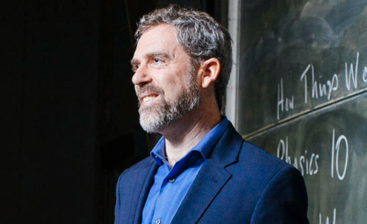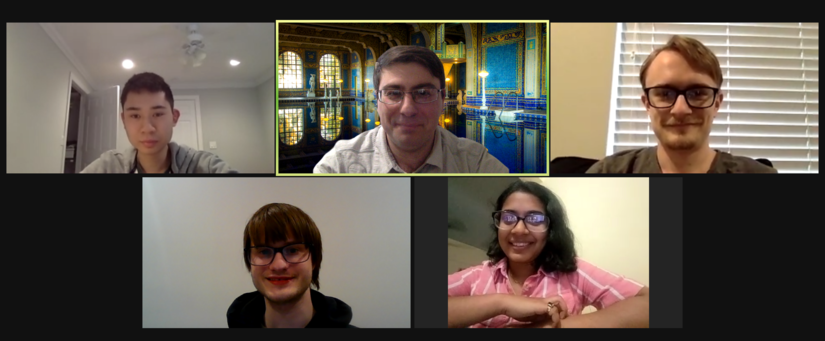Kenneth Barish, a professor of physics and astronomy, has received a three-year renewal grant of more than $1 million from the Department of Energy, or DOE, to support the activities of the Nucleon Spin Physics Group at UC Riverside.

Physicists have made significant theoretical and experimental progress in understanding where the total spin of the proton comes from, but a detailed understanding of its spin structure remains largely elusive. Spin, which is a fundamental quantum number, is analogous to the Earth spinning on its axis. To fully understand the origin of the Earth’s “spin,” one needs a detailed understanding of the Earth’s composition and account also for the Earth revolving around the sun.
“The total spin of the proton has been known for nearly a century and a great deal about the 1-dimensional longitudinal spin structure of the proton has been learned over the past two decades; however, measurements that explore the transverse structure are needed to make progress,” said Barish, who chairs the Department of Physics and Astronomy.
Transverse refers to a direction of motion — specifically, the direction perpendicular to an object’s motion. A proton’s transverse properties in spin and motion can give physicists valuable information.
Barish’s group will use collisions of transversely polarized high-energy protons at the Relativistic Heavy Ion Collider, or RHIC, at Brookhaven National Laboratory to go beyond the one-dimensional picture and study quark-gluon structure and dynamics inside the proton.
“In the near term, we will analyze data to study the origin of the unexpectedly large transverse spin asymmetries seen in previous data,” Barish said. “Looking ahead, we will have access to unique measurements that are expected to shed light on the inner workings of the proton.”
STAR students
Six graduate students in the Department of Physics and Astronomy are participating in particle physics research at Brookhaven National Laboratory — work that will ultimately inform their doctoral dissertations.
“Facilities at national laboratories for fundamental research are selected as the highest priorities by the research community for projects that require too many resources to be realized at universities,” Barish said.
The students — David Kapukchyan, Xilin Liang, Erik Loyd, Ananya Paul, Cameron Racz, and William Baker — are helping construct a forward calorimeter system for the STAR experiment, the only experiment currently gathering data at RHIC. A calorimeter is a device used to measure the amount of heat involved in a chemical or physical process.

The STAR detector tracks the thousands of particles produced by each ion collision at RHIC. Weighing 1,200 tons, it searches for signatures of the quark-gluon plasma, a form of matter whose detection can help scientists better understand the very early universe.
Two main topics of research at RHIC are polarized proton collisions and heavy ion collisions. RHIC is made up of two accelerator rings, each 2.4 miles in circumference, which house hundreds of superconducting magnets. The magnets steer gold nuclei around the rings at near-light speed, giving these nuclei high energies.
“RHIC allows us to do polarized collisions,” Kapukchyan said. “The Large Hadron Collider at CERN cannot do this. We are trying to understand the internal structure of protons. How this internal structure gives protons their properties is not well understood. How do quarks and gluons make up the mass of the proton? The experiments we are doing will help address these questions.”
The DOE grant to Barish will support the work being done at RHIC by Kapukchyan, Liang, Paul, and Baker. It will also support Latif Kabir, a postdoctoral researcher working with Barish. Loyd and Racz are supported by a separate DOE grant to Richard Seto, a professor of physics and astronomy at UCR.